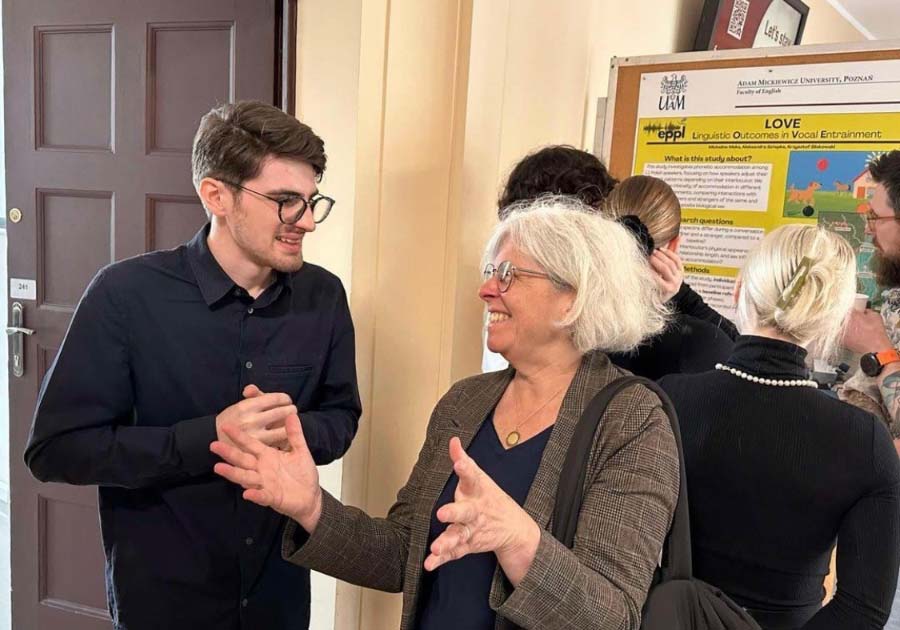Fulbright Sends Historian Mary Ellen Curtin to Poznań, Poland
When historian Mary Ellen Curtin landed in Poznań, Poland, she brought more than lectures and lesson plans. She brought a deep commitment to sharing the story of democracy—and all its challenges and complexities. Over five months as a Fulbright Distinguished Scholar in the Humanities and Social Sciences at Adam Mickiewicz University, Curtin taught courses on race and politics, gave public talks, and worked closely with Polish scholars and students eager to connect their own nation’s democratic journey with the United States’ ongoing political transformations.
 Poznań, Poland. Photo by Serhii-Pererva.
Poznań, Poland. Photo by Serhii-Pererva.
The Fulbright Program is the US government’s flagship international educational exchange initiative, and Curtin’s award reflects American University’s recent designation as an “R1” research institution by the Carnegie Classification system and its expanding reputation for global leadership in science, health, history, and public policy research.
Since its founding in 1946, the Fulbright program has increased mutual understanding between the people of the United States and those of other countries. Its alumni include 44 heads of state of government, 62 Nobel Prize winners, 82 MacArthur Foundation Fellows, and 90 Pulitzer Prize recipients.
For Curtin, a professor in AU’s Department of Critical Race, Gender, and Culture Studies and a biographer of Texas congresswoman Barbara Jordan, the fellowship was both an academic honor and a personal mission. It was a chance to share her expertise in African American and women’s history, foster cross-cultural dialogue, and challenge students to think critically about the promises and perils of expanding democracy.
“Curtin’s Fulbright fellowship underscores the university’s commitment to impactful global scholarship, says College of Arts and Sciences Dean Linda Aldoory. “Professor Curtin’s Fulbright is a tremendous honor for both her and American University. It reflects the excellence of her scholarship, the inspiration she brings to students, and the profound impact her teaching has beyond our campus—fostering a global conversation about democracy and its ongoing challenges.”
Expanding Democracy and Ongoing Struggles
Curtin, former director of American Studies at AU, says she was thrilled to collaborate with colleagues at Adam Mickiewicz University—Poland’s leading center for English language learning—to help expand their American Studies course offerings.
“Many of the undergraduate students in American Studies are also working towards joint degrees in literature, translation, and sociolinguistics,” says Curtin. “It was fascinating to work with foreign students who possessed a deep interest and knowledge of American culture, language practices, and politics but who had never visited the United States.” American Studies is a growing field in Poland, and students are especially drawn to contemporary issues of race, sexuality, capitalism, and academic freedom in American culture and politics.
Curtin also encouraged students to compare the evolution of Polish and American democracy. For example, the new political parties and democratic institutions that emerged after Poland’s Solidarity movement and the fall of communism share some parallels with the rise of Black voters and politicians following the Civil Rights Movement and the 1965 Voting Rights Act.
 Professor Mary Ellen Curtin with one of her students at Student Research Day in Poznań, Poland.
Professor Mary Ellen Curtin with one of her students at Student Research Day in Poznań, Poland.
Many of the course themes drew upon Curtin’s research for her recent book She Changed the Nation: Barbara Jordan’s Life and Legacy in Black Politics (University of Pennsylvania Press, 2024). In the book, Curtin traced Jordan’s journey from a Black community in segregated Houston, Texas, to becoming a nationally known civil rights activist and Democratic Party leader. A theme she stressed in class was that “recent history demonstrates that although greater inclusion and the broadening of democracy are possible, the future remains contingent.”
Over time, many Polish students’ initial reservations gave way to eager, thoughtful discussions—particularly about recent elections. “We observed that one of the ironies of expanding democracy is that it allows for the inclusion of anti-democratic voices. Thus, the struggle for meaningful political representation is ongoing,” Curtin says.
What’s Next?
Curtin plans to continue collaborating with her Adam Mickiewicz University colleagues and hopes to begin by organizing online mini conferences to share student research. For more information about American University’s Department of Critical Race, Gender, and Culture Studies (CRGC) website.